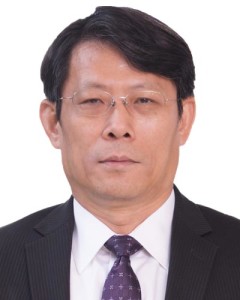In a general sense, the term “occupational fraud” means that an employee of an enterprise acts in breach of his or her fiduciary duty, violates the rules and regulations of the enterprise, or takes advantage of a flaw in the enterprise’s risk control systems to reap private gains at the cost of the interests of such enterprise. Not only does occupational fraud harm the economic interests of the enterprise but, when severe enough, may subject the enterprise together with its main person in charge to criminal liability. Accordingly, an enterprise should refine its internal risk control systems and provide its employees with compliance training to root out occupational fraud.

Xin Bai Law Firm
Director, Partner
Relevant regulations. Paragraph (3), article 25 of the Labour Law, and paragraph (3), article 39 of the Employment Contract Law coincide in specifying that where a worker commits a serious dereliction of duty, practises graft or engages in embezzlement causing material damage to the employer (or the employer’s interests), the employer may terminate his or her employment contract. Under such circumstance, payment of severance pay to the employee is not required.
Although no law has made clear how to determine whether an employee practising graft or engaging in embezzlement has caused a “material” damage to the enterprise, in judicial practice reference is usually made to the criteria for opening a case in a crime of occupational appropriation. Article 84 of the Provisions of the Supreme People’s Procuratorate and the Ministry of Public Security on the Criteria for Opening a Case and Prosecuting Criminal Cases Where the Public Security Authorities Have Jurisdiction (2) specifies that “where an employee of a company, enterprise or other entity takes advantage of his or her position to illegally appropriate property of his or her employer for himself or herself, the amount of which falls between RMB5,000 (US$750) and RMB10,000 or more, a case shall be opened against him or her, and he or she shall be prosecuted”. In other words, generally, an employee is deemed to have brought to his or her employer a material damage if such damage reaches or exceeds RMB5,000.

Xin Bai Law Firm
Senior Attorney
Responsive measures. As most enterprises have zero tolerance to occupational fraud, if a fraud perpetrated by an employee causes damage less than RMB5,000, how should an enterprise act? Paragraph (2), article 30 of the Employment Contract Law offers an answer by allowing the employer to terminate any employee’s employment contract if he/she materially breaches its rules and regulations. Accordingly, if an employee is in material breach of any express provision governing employee fraud, as contained in the rules and regulations lawfully formulated by the employer, the employer may lawfully terminate his or her employment contract.
In other words, an employer may expressly set out in its lawfully formulated laws and regulations each specific circumstance that should be deemed as occupational fraud, and further specify that any act of such fraud shall constitute a material breach of its rules and regulations and will result in immediate termination of the employee’s employment contract. Of course, this approach is nothing more than a feasible measure available to protect an employer’s rights and interests to the greatest extent possible, but, in practice, labour dispute arbitrators and/or judges may still insist on taking the amount of loss suffered by the employer as the criterion for determining whether a “severe” fraud is constituted.
As occupational fraud will normally result in an economic loss, most commonly a direct monetary loss, the enterprise can demand liquidated damages by instituting a civil procedure for unjust enrichment against an employee or a third-party company that bears a connection with the employee.
An employee’s occupational fraud may also constitute a criminal offence if it is deemed as severe, or the resulting loss has reached a certain amount. For example, an employee who takes advantage of his or her position to unlawfully appropriate company property as his/her own may have committed the crime of occupational appropriation under China’s Criminal Law.
Commonly seen situations include the surreptitious creation of a “slush fund” used for private purposes, taking a share of illegally collected cash, fraudulent reimbursement claims, engaging in illegal trading with a company established by the employee himself or herself, or by a family member or friend, etc. Once any of these circumstances is uncovered by the company’s internal audit department or a relevant authority (particularly a tax authority), the enterprise may act in accordance with the law.
Preventive measures. Occupational fraud takes its root mainly in non-compliant and defective risk control, and other management systems of the enterprise, and secondarily in insufficient compliance training for employees. Accordingly, to prevent occupational fraud by employees, an enterprise mainly needs to strengthen its management in two respects.
First, the enterprise has to refine its internal risk control systems and financial management systems, and stringently control those business activities and procedures where fraud frequently occurs, such as procurement, expense reimbursement, etc., and clarify with more detail the specific authority for approval, particularly the authority for approval granted to senior management personnel. Further, the enterprise should also link the above-mentioned management systems with the rules and regulations regarding employment and personnel management, and place restrictions on the promotions, year-end bonuses, employee incentives, etc., of employees who fail to strictly abide by the rules and regulations. It should offer extra incentives, rewards, etc., to those who diligently comply with rules and regulations so as to incentivize employees to willingly comply with these.
Second, the enterprise should strengthen compliance training for employees so as to strengthen their risk awareness of preventing occupational fraud. In the course of training, employees should be made duly aware that their fraudulent acts may not simply constitute a breach of the enterprise’s rules and regulations that are likely to lead to dismissal, but could also run afoul of the criminal law and thus result in corresponding criminal punishment.
Furthermore, a US-invested or listed enterprise should additionally provide all of its employees with training on compliance with the Foreign Corrupt Practices Act (FCPA) so as to protect its US parent company from and against relevant penalties by the US government, or even criminal liability arising from any employee’s malpractices in China.
In addition, when investigating occupational fraud and securing relevant evidence, it is often necessary to draw on such technical means as forensic accounting, data recovery and search, etc., and to have the same notarized.
Qi Bin is the director and partner, and Zhang Junqiang is a senior attorney at Xin Bai Law Firm
Room 1203, 12/F, Infinitus Tower
168 Hu Bin Road, Huangpu District
Shanghai 200021, PRC
Tel: +86 21 5368 4111
Fax: +86 21 5368 4112
E-mail:
bin.b.qi@xinbailaw.com
henry.jq.zhang@xinbailaw.com






















